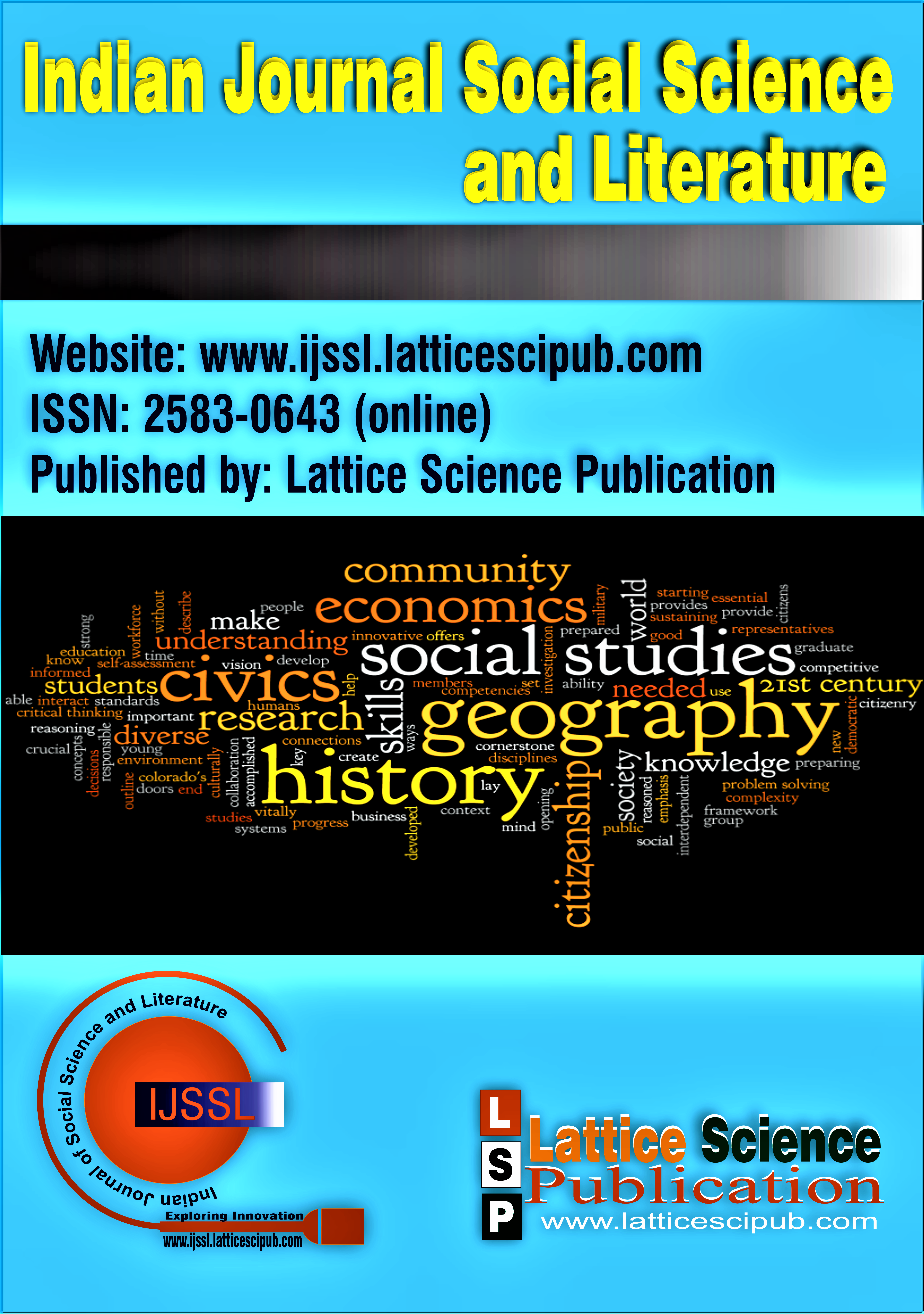Right to the Indian City
Main Article Content
Abstract
In Indian governance studies, the urban government is largely understudied. Even less research has been done on it from the standpoint of citizenship and rights. In addition to the general requirement to make the city a more welcoming environment for its inhabitants, the right to the city entails the provision of fundamental urban amenities such as basic housing, clean drinking water, sanitary facilities, and a wide range of other necessities. In urban studies, governance has gotten the least attention, and the current discussion is only about governments in major cities. However, the idea of “right to the city” must be applied to cities of all scales. This paper investigates the significance of and potential applications for the Right to the City in Indian cities. It examines how the Right to the City is expressed internationally in both national and international legal frameworks, recounts Indian housing law precedent, and explains the political strategies of staking claims to urban areas in India. The methodology is based on the literature review, via a critical reading, of the available secondary data. This study analyses the Right to the City to highlight the prevalent issues and challenges in its implementation in India. The study concludes that affirming the right to the city as a basic right arising out of the Indian Constitution would lead to an improvement in urban governance, which would then be carried out in a more inclusive way, taking into consideration the fundamental urban and human rights of its residents and contributing to the larger goal of sustainable cities in India.
Downloads
Article Details

This work is licensed under a Creative Commons Attribution-NonCommercial-NoDerivatives 4.0 International License.
How to Cite
References
Domaradzka, A. (2018). Urban Social Movements and the Right to the City: An Introduction to the Special Issue on Urban Mobilization.
Voluntas, 29(4), 607–620. https://doi.org/10.1007/s11266-018-0030-y [CrossRef]
Harvey, D. (1989). From Managerialism to Entrepreneurialism: The Transformation in Urban Governance in Late Capitalism. Geografiska
Annaler: Series B, Human Geography, 71(1), 3–17. https://doi.org/10.1080/04353684.1989.11879583 [CrossRef]
Idiculla, M. (2020). A Right to the Indian City? Legal and Political Claims over Housing and Urban Space in India. Socio-Legal Review,
(1), 1–25.
Kaya, A. (2019). Right to the city. Rethinking Ideology in the Age of Global Discontent, 144–159. https://doi.org/10.4324/9781315109008-9
[CrossRef]
Marcuse, P. (2009). From critical urban theory to the right to the city. City, 13(2–3), 185–197. https://doi.org/10.1080/13604810902982177
[CrossRef]
Profile, S. E. E. (2011). Urban Policies and the Right to the City in India (Issue January).
Purcell, M. (2014). Possible worlds: Henri lefebvre and the right to the city. Journal of Urban Affairs, 36(1), 141–154. https://doi.org/10.1111/juaf.12034 [CrossRef]
Samal, M. (2022). Implementing the Right to the City: A Legal Tool for Improving the Rights of Refugees in Indian Cities. Australian Journal of Asian Law, 22(1), 69–79.
Vaddiraju, A. K. (2016). Urban Governance and Right to the City. 21–23.
Watch, P. (2021). Tracing Right to the City Under the Indian Constitution. 1, 10–13.





